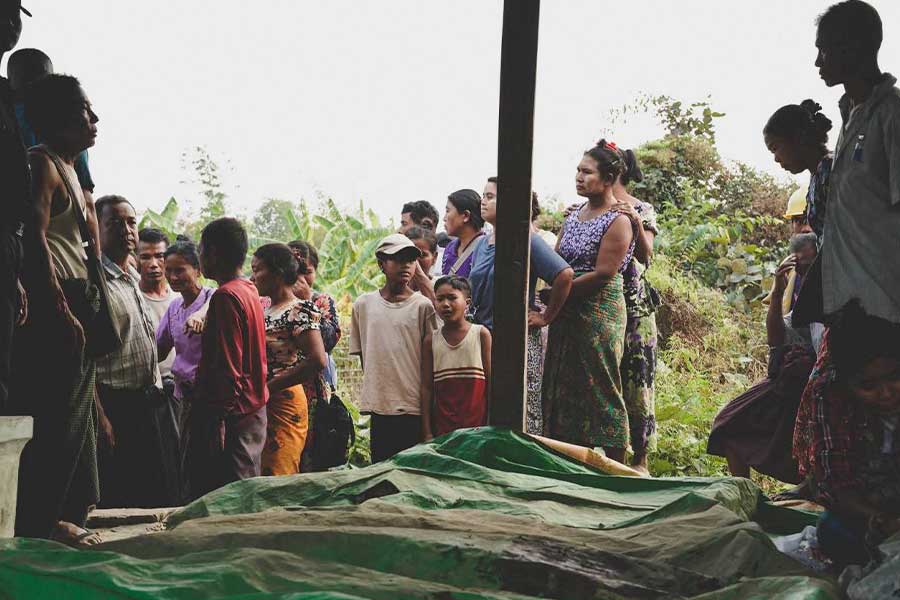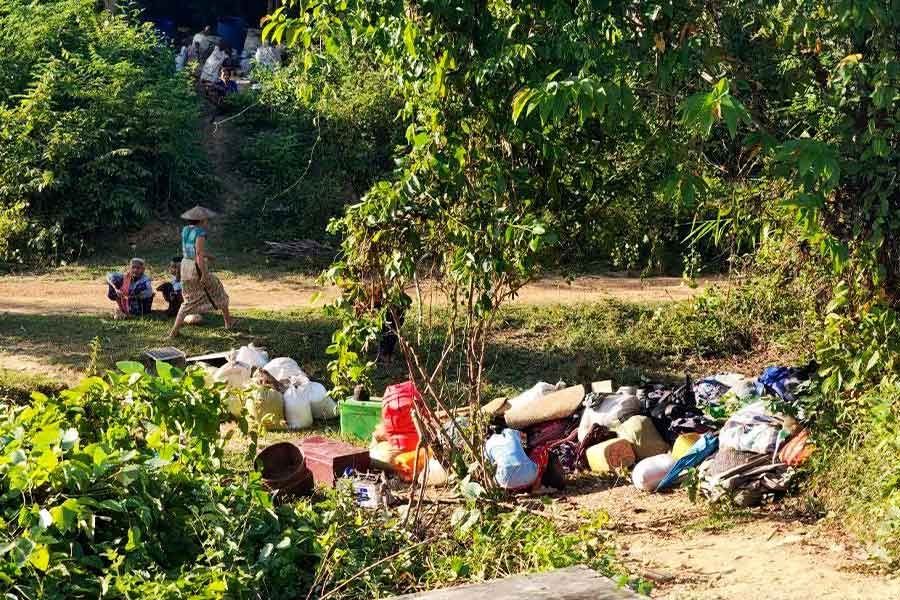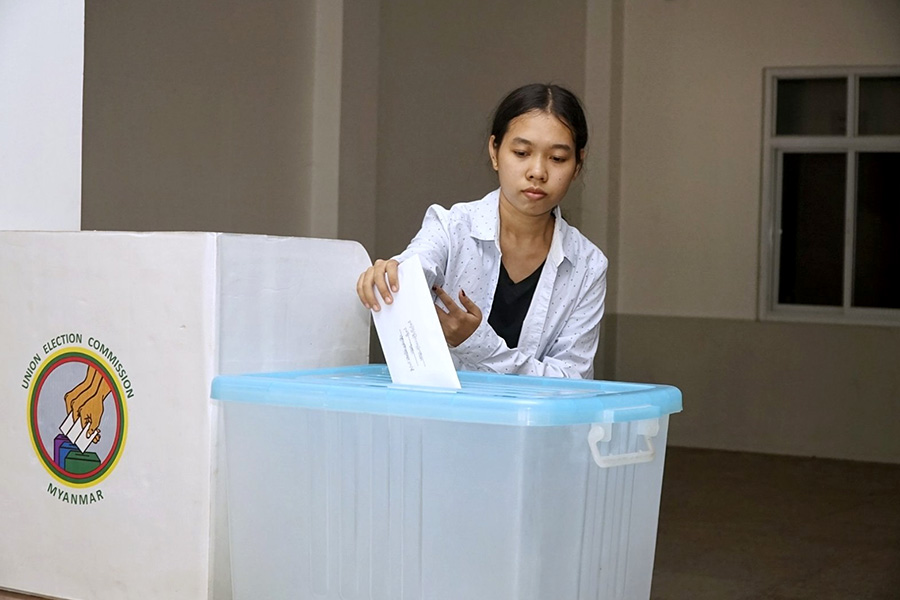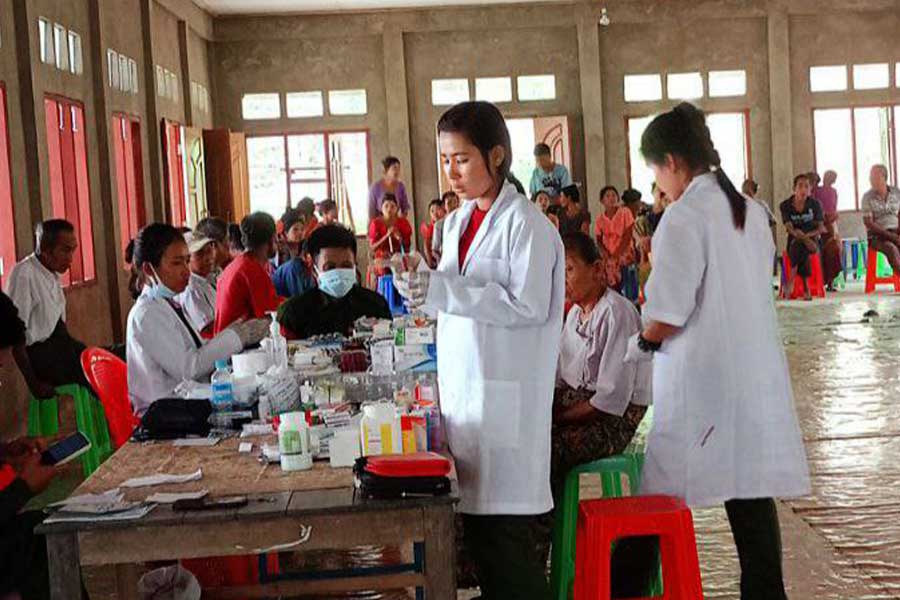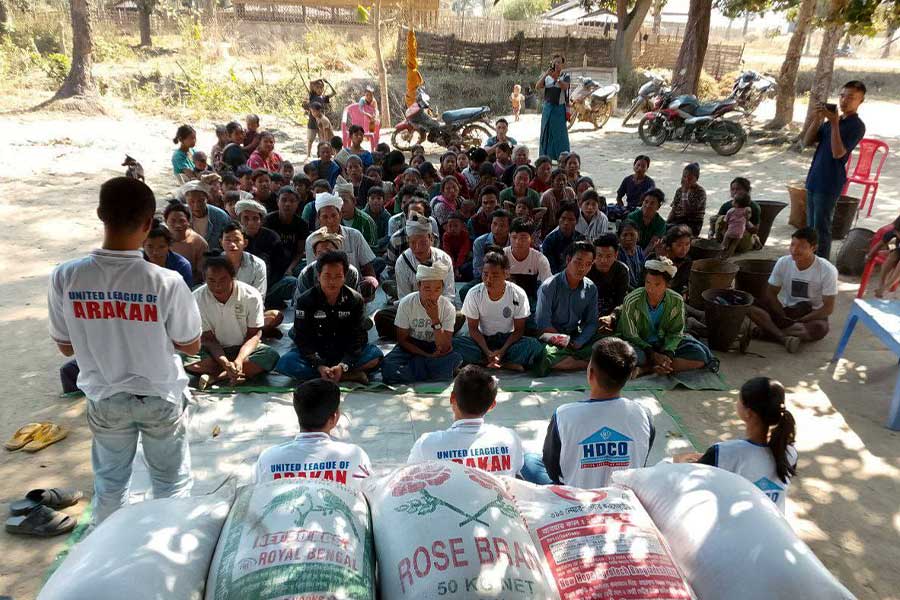- 15 mass casualty incidents from regime airstrikes reported in Arakan State since 2023
- Kyaukphyu IDPs forced to flee again amid junta airstrikes and artillery attacks
- New Diplomatic Movements Between Bangladesh’s New Government and the Arakan Public Administration
- Junta claims over 24 million ballots cast in 2025 poll, cites strong youth turnout
- ULA expands HIV prevention, healthcare services for sex workers in AA-held areas
Rice prices rise amid falling yields in Arakan State
Domestic rice prices have increased due to decreased paddy yields in Arakan State this year, according to local businesspeople.
08 Feb 2023

DMG Newsroom
8 February 2023, Sittwe
Domestic rice prices have increased due to decreased paddy yields in Arakan State this year, according to local businesspeople.
The price of a sack of Paw Hsan Mwe, the most popular variety of rice among Sittwe residents, has increased by around K15,000, from K50,000 to K65,000 and a lower grade rice variety has risen by K10,000, from K40,000 to K50,000.
U Tha Zan Hla, a rice dealer from Sittwe, said the price of rice has been increasing since the beginning of January, from K3,000 to K5,000 per sack.
“This year, the paddy yield was not as good as it should have been. The paddy yield was not good, and the rice price was skyrocketing,” he said. Despite the rise in rice prices, demand remains normal, he added.
Due to the scarcity of rice in the rice market, some people in Arakan State are buying and storing the staple grain, according to rice dealers.
During this year’s paddy growing season in Arakan State, paddy yields reportedly decreased by as much as 50 percent due to a combination of climate change, high input costs, and soaring fertiliser prices.
U Khin Maung Gyi, a businessman from Arakan State, said the price of rice usually falls during the paddy harvest, but not this year.
“Due to the decrease in paddy yield, the price of rice will continue to rise. The military and political situation in Arakan State is not a reliable situation, so the price of rice will continue to rise,” he explained.
U Soe Naing of Kyiyarpyin Village in Mrauk-U Township said 100 baskets of paddy are being bought by dealers at a price of K1.2 million or more in northern Arakan State.
“For the farmers, it is a situation where they get a certain [benefit]. If the paddy price is not good, the farmers will be in a lot of trouble. It can be said that the farmers are a little better off because of the price they get,” he said.




